Potential Soil Quality Impact of Harvesting Crop Residues for Biofuels
DOI:
https://doi.org/10.31285/AGRO.15.600Keywords:
bioenergy, soil management assessment framework (SMAF), renewable energy assessment project (REAP)Abstract
We are in one of the greatest technological, environmental and social transitions since the industrial revolution, as we strive to replace fossil energy with renewable biomass resources. My objectives are to (1) briefly review increased public interest in harvesting crop residues as feedstock for bioenergy, (2) discuss the work soil scientists must do to address those interests, and (3) examine how soil quality assessment can be used to help quantify soil biological, chemical and physical response to this transition. Rising global energy demand, dependence on unstable imports, volatility in price, and increasing public concern regarding fossil fuel combustion effects on global climate change are among the factors leading to an increased interest in development and use of renewable biomass sources for energy production. Although controlling soil erosion by wind and water is no less important than in the past, it is not the only factor that needs to be considered when evaluating the sustainability of land management practices including harvest of crop residues as bioenergy feedstock. The concept of soil quality assessment is reviewed and the Soil Management Assessment Framework (SMAF) is used to illustrate how such assessments can be used for assessing impacts of harvesting crop residue as feedstock for bioenergy production. Preliminary results of the SMAF assessment show that soil organic carbon (SOC) is one of the lower scoring indicators and therefore needs to be monitored closely. Innovative soil and crop management strategies, including a landscape vision are offered as ideas for achieving sustainable food, feed, fiber, and energy production.
Downloads
Downloads
Published
How to Cite
Issue
Section
License
Copyright (c) 2021 Agrociencia Uruguay

This work is licensed under a Creative Commons Attribution 4.0 International License.
| Article metrics | |
|---|---|
| Abstract views | |
| Galley vies | |
| PDF Views | |
| HTML views | |
| Other views | |

















